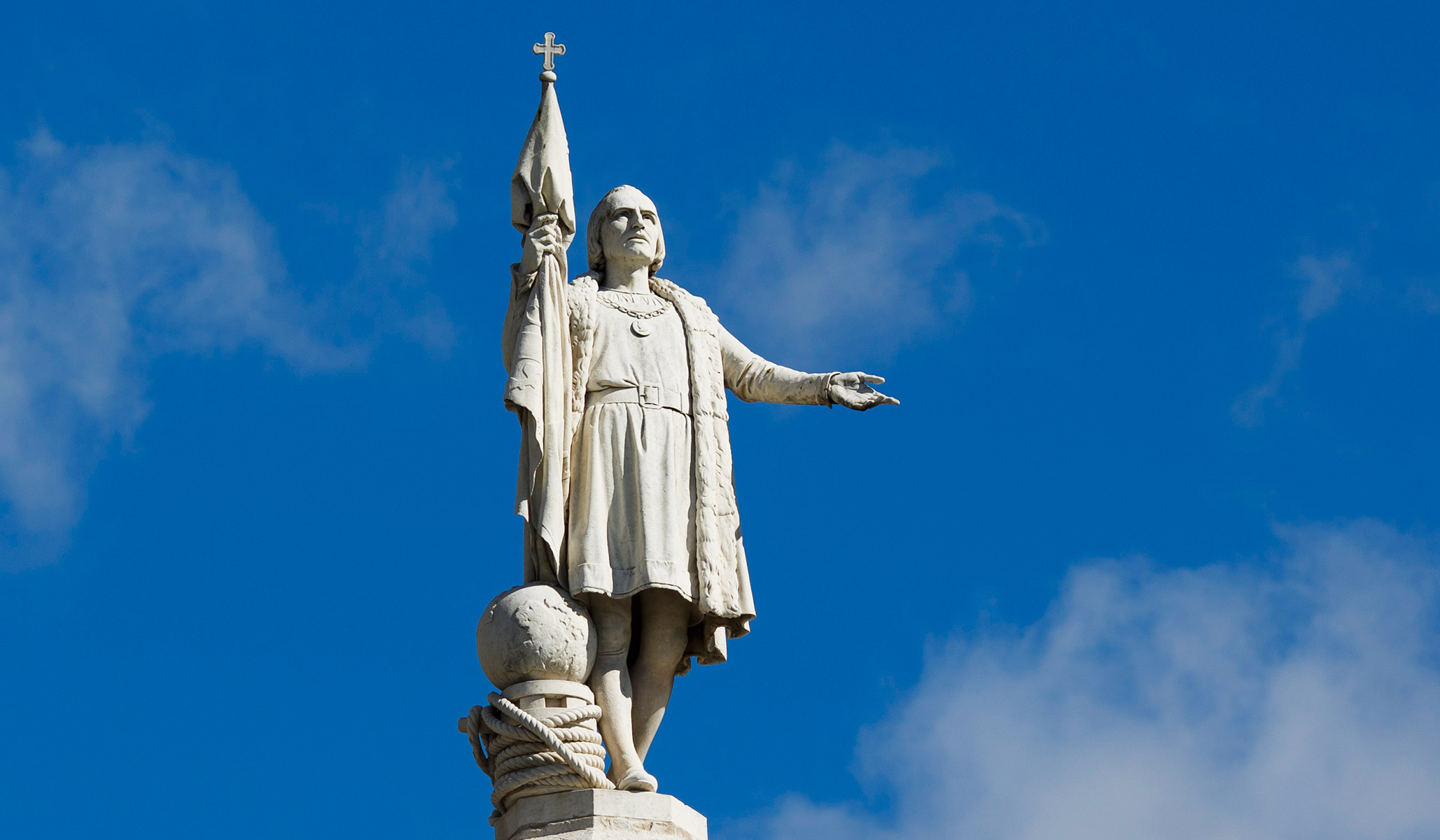A new research paper from Italy argues, from the writings of a 14th-century Milanese friar, that sailors in Genoa — the home town of Christopher Columbus — knew of a land west of Greenland across the Atlantic. This lends more color to the enduring question of what, exactly, Columbus expected to find when he set out across the ocean:
An account by Genoan sailors of a verdant land beyond Greenland “where giants live” has been found in a history of the world written around 1340 by an Italian friar — 152 years before Columbus set foot in the Americas in 1492. “This astonishing find is the first known report to circulate in the Mediterranean of the American continent, and if Columbus was aware of what these sailors knew it might have helped convince him make his voyage,” said Paolo Chiesa, who led the research at the University of Milan.
The source of this knowledge is presumably the oral tradition derived from Leif Erikson, Eric the Red, and other Viking mariners who explored Iceland, Greenland, and the North Atlantic in the tenth and eleventh centuries. As Chiesa’s paper explains:
The Cronica universalis written by the Milanese friar Galvaneus Flamma . . . contains an astonishing reference to a terra que dicitur Marckalada, situated west from Greenland. This land is recognizable as the Markland mentioned by some Icelandic sources and identified by scholars as some part of the Atlantic coast of North America. Galvaneus’s reference, probably derived by oral sources heard in Genoa, is the first mention of the American continent in the Mediterranean region, and gives evidence of the circulation (out of the Nordic area and 150 years before Columbus) of narratives about lands beyond Greenland.
Chiesa quotes at length from the text, written in Latin; they key passage, translated into English, describes Iceland, Greenland (Grolandia), and the semi-mythical “Marckalada”:
Sailors who frequent the seas of Denmark and Norway say that northwards, beyond Norway, there is Iceland; further ahead there is an island named Grolandia, where the Polar Star remains behind you, toward the south. The governor of this island is a bishop. In this land, there is neither wheat nor wine nor fruit; people live on milk, meat, and fish. They dwell in subterranean houses and do not venture to speak loudly or to make any noise, for fear that wild animals hear and devour them. There live huge white bears, which swim in the sea and bring shipwrecked sailors to the shore. There live white falcons capable of great flights, which are sent to the emperor of Katai. Further westwards there is another land, named Marckalada, where giants live; in this land, there are buildings with such huge slabs of stone that nobody could build with them, except huge giants. There are also green trees, animals and a great quantity of birds. However, no sailor was ever able to know anything for sure about this land or about its features.
Chiesa extrapolates from a variety of circumstantial evidence, discussed in the paper, to trace this tradition to the great seaport at Genoa, which in the 14th century was a major hub of maritime commerce (Balaklava in the Crimea, for example, was founded by Genoese sailors in this era, who named it “Bella Clava,” meaning “beautiful port”):
Where might Galvaneus have heard, directly or indirectly, about sailors’s experience? He lived in Milan, an inland city, not exactly a customary destination for seafarers. Our assumption is that he is reporting firsthand or secondhand information coming from Genoa, the closest seaport to Milan. As a matter of fact, in the Cronica universalis Galvaneus also shows familiarity with Genoa and Genoese sources in other cases.
For those hardy souls still celebrating Columbus Day next month, this provides some food for thought about what the medieval world knew or suspected about the lands across the ocean. Of course, someone still needed the bold spirit of adventure to cross it in 15th-century ships to see for himself.
